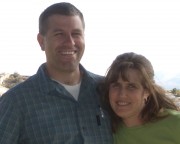 Our modern world is infatuated with the ends we have in our sight, the goals we want to accomplish, and the changes we want to see.
Our modern world is infatuated with the ends we have in our sight, the goals we want to accomplish, and the changes we want to see.
Most people have the same needs and desires: liberty, happiness, security, prosperity, and peace. Why do we consistently find ourselves so far from where we want to be?
The problem is two-fold: 1) we mistakenly believe that if we focus on the end we will attain it; and 2) we are using means that are inconsistent with those ends.
History is essentially the account of the means societies have chosen to achieve their ends.
France of 1789 wanted “liberty, equality, fraternity.” Because they chose means inconsistent with those ends (“The Reign of Terror”) they reaped a dictatorship.
The putative “means” (in the Treaty of Versailles) chosen by Great Britain and France to punish and weaken Germany after World War I accomplished the opposite. The terms of the treaty helped create the environment that allowed Adolf Hitler to rise to power.
The great modern philosopher, Jack Johnson, asks: “Where’d all the good people go?” and then answers his own question: “We’ve got heaps and heaps of what we sow.”
The Natural Law of The Harvest
There exists a natural law of the harvest: What we sow, that too shall we reap. Others may describe it as the law of cause and effect: we cannot act (the cause) in a certain manner without a specific consequence (the effect) naturally following that action. To believe otherwise is either naïve or insane.
For whatever reason, most of us attempt to defy these laws of the harvest or cause-and-effect. In my family I desire to raise freely obedient children who choose to do good for its inherent goodness; but I often resort to punishments, promises of rewards, or force in order to accomplish that goal.
If I persist in these means, I will fail to achieve my end. Most desire to have a home filled with love, kindness, patience, and peace; but how often do we resort to yelling, arguing, blaming, sarcasm, belittling, verbal and sometimes physical abuse in what will be an impossible attempt to achieve our goal?
As a society, we have chosen to be ends-based and goal-oriented, asking ourselves the wrong question (what do we want to accomplish?) instead of asking ourselves the right question: How must I live my life in order to achieve the right ends?
If we focus on means instead of ends, our planting will naturally bring us the desired harvest: true means will take us to true ends.
The Law Applies At All Levels
Consider foreign policy for a moment. What do the citizens of nations want? We want food and shelter for our families, peace, freedom, and protection of life. What are the means that will bring these into being? Protectionism, nationalism, war, exploitation, racism, ethnic cleansing, and imperialism? No!
Louis Fischer, in his wonderful short biography of Mohandas K. Gandhi writes: “Gandhi contended that to act while renouncing interest in the fruits of action is the best road to success.”
He who is ever brooding over result often loses nerve in the performance of duty. He becomes impatient and then gives vent to anger and begins to do unworthy things; he jumps from action to action, never remaining faithful to any.
He who broods over results is like a man given to the objects of senses; he is ever-distracted, he says good-bye to all scruples, everything is right in his estimation and he therefore resorts to means fair and foul to attain his end.
Living life by the right means, on the other hand, assures us that we will enjoy the fruits of our true labor. This method is diametrically opposed to the pragmatism and expediency that rule the day in modernism; it takes time and a generational view of the world.
We must approach it understanding that our means, be they right or wrong, will have consequences many generations into the future. If we choose to use foul means, we will reap foul fruit.
Reap Peace and Justice
This is the law of the harvest. We cannot expect to reap peace if we sow war. We cannot expect to reap love when we sow hatred. Our means are the sowing and fruits are the ends. One cannot choose to sow corn and expect to grow wheat. Thus our means are the determining factor of the fruit. To act otherwise is illogical, unwise, and doomed to failure.
Consider from literature the means of the Bishop of Digne, the transient, yet omnipresent (because of his impact), initial character in Victor Hugo’s “Les Miserables.”
Jean Valjean, a released convict who had seeds of hatred and humiliation sown in his heart by the criminal “justice” system or penal system, arrives on the doorstep of the bishop, filled with bad intentions.
Although not a bad man when initially imprisoned, Valjean responds to the means used to “reform” or punish him for stealing a loaf a bread to feed his sister’s children by becoming filled with contempt, rancor, distrust, and evil designs. These are the natural ends of the means society employs in its effort to achieve justice.
The bishop had chosen a different path. He loved Valjean, responding to his query “You knew my name?” thus: “Yes. Your name is ‘my brother,’” with utmost kindness and forgiveness, giving Valjean his silver candlesticks after the convict had just stolen the other silver in the house.
This act of kindness, trust, forgiveness, and love sows a seed of the same, which society eventually reaps, as Valjean becomes a wonderful, kind, giving, and patient man. The impact of the means used by the Bishop of Digne is widespread and powerful, changing the lives of many.
If liberty, prosperity, peace, and the pursuit of happiness are the ends we seek, we must daily, hourly, vigilantly check our means to assure that they are completely consistent with these ends.
Look around you. See what means we are using in education, families, religion, business, government, communities, foreign policy, and media and decide if what we are planting will give us the desired harvest.
Recognize that we are, in all facets of our lives, reaping in abundance what we have sown. We must sow differently.
****************
 Mike Wilson received his B.S. degree in Chemistry from Brigham Young University and pursued graduate work at the University of California, San Diego, where he earned a M.S. degree in Biomedical Sciences prior to obtaining his M.D. at the UCSD School of Medicine.
Mike Wilson received his B.S. degree in Chemistry from Brigham Young University and pursued graduate work at the University of California, San Diego, where he earned a M.S. degree in Biomedical Sciences prior to obtaining his M.D. at the UCSD School of Medicine.
He lives in Cedar City, Utah with his wife Jenni and their six children and practices emergency medicine in St. George, Utah while working on a Ph.D. in Constitutional Law at George Wythe University. He is also an Associate Mentor at GWU.
Mike’s passion is promoting idea that the common man has power and capacity to affect grand change in the world through true principles of love, goodness, and virtue. Because of his Jeffersonian trust in the common man, he considers himself a “little d” democrat (an ideal, not a political party).






Excellent article! I’ve been so inspired by all the articles that have been writtn lately. The last two that Mike Wilson wrote are exception as well as all the others. Thank you so much all of you for setting the example of “one who goes before”. My life and my family’s life has been incredibly blessed by all of you! I gain so much from reading these articles! PLEASE DON’T STOP!!!!!!!! Many thanks! Lori